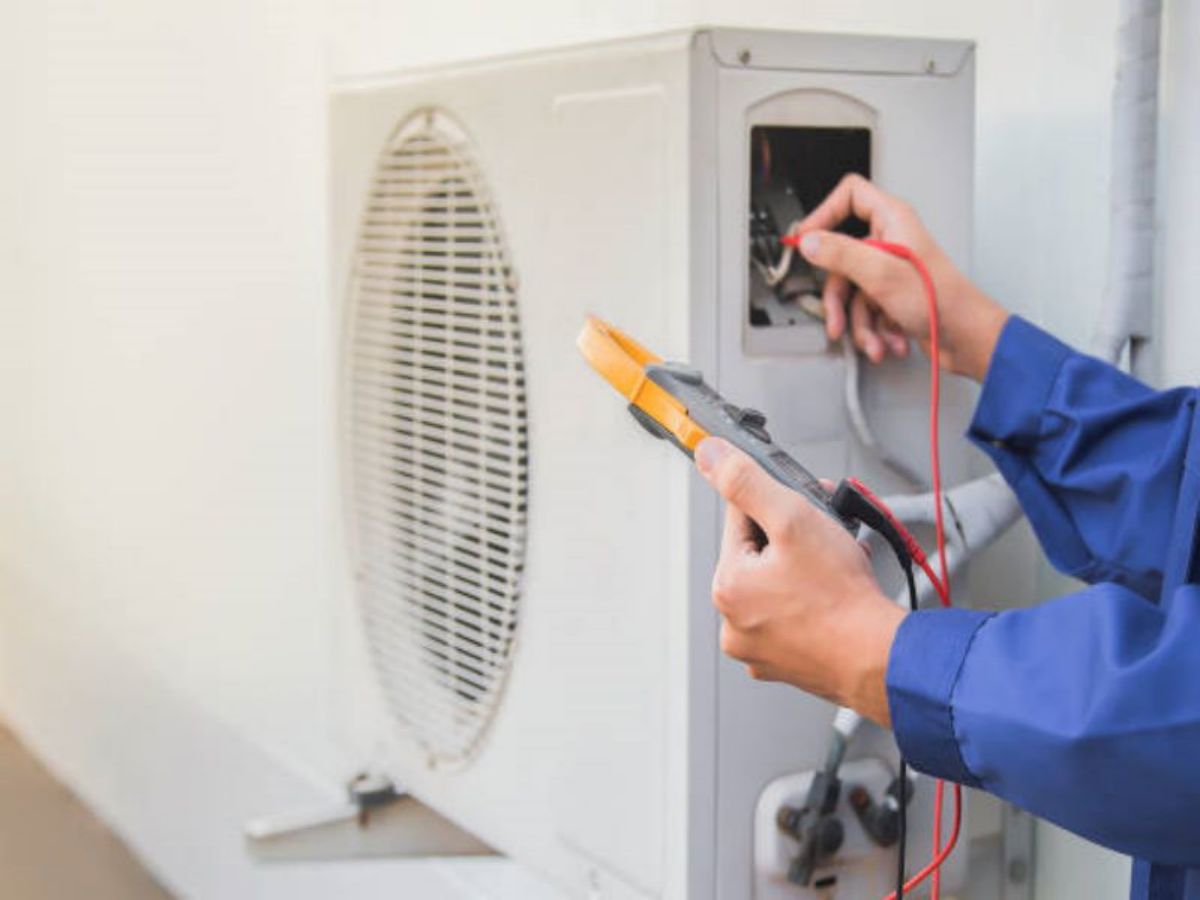Table of Contents

The Role of a Contactor on an AC Unit: Ensuring Efficient Cooling
AC units, especially in larger commercial or residential buildings, rely on various components to function properly. One such crucial component is the contactor. In this article, we will delve into the workings of a contactor on an AC unit, its significance, and why it plays a vital role in ensuring efficient cooling.
1. What is a Contactor and How Does it Work?
A contactor is an electrical switch that controls the flow of electricity to the compressor and condenser fan motor in an AC unit. It acts as a bridge between the power source and these components, allowing for smooth operation. When the thermostat signals the need for cooling, the contactor engages and completes the circuit, allowing electricity to flow to the compressor and fan motor.
2. The Importance of a Properly Functioning Contactor
A properly functioning contactor is vital for the overall performance and efficiency of an AC unit. It ensures that the compressor and fan motor receive the necessary electrical supply to operate optimally. Without a functioning contactor, the AC unit may not turn on at all, or it may struggle to cool the space effectively.
3. Signs of a Faulty Contactor
Over time, contactors can wear out or become damaged due to continuous use. It is important to be aware of the signs that indicate a faulty contactor, such as:
- AC unit not turning on
- Unusual buzzing or humming sounds coming from the unit
- Poor cooling performance
- Frequent tripping of the circuit breaker
If you notice any of these signs, it is advisable to have a professional HVAC technician inspect and replace the contactor if necessary.
4. The Role of the Contactor in Energy Efficiency
A well-functioning contactor plays a crucial role in the energy efficiency of an AC unit. By ensuring that the compressor and fan motor receive the correct voltage, it helps prevent energy wastage. Without a functioning contactor, the AC unit may draw more power than necessary, leading to higher energy consumption and increased utility bills.
5. Different Types of Contactors
Contactors come in various types, each designed for specific voltage and current ratings. The most common types include:
- Single-pole contactor: Suitable for AC units with a single-phase power supply.
- Double-pole contactor: Used in AC units with a split-phase power supply.
- Three-pole contactor: Found in AC units with a three-phase power supply.
It is crucial to ensure that the correct type of contactor is installed in an AC unit to ensure safe and efficient operation.
6. Regular Maintenance and Inspection
To ensure the longevity and optimal performance of an AC unit, regular maintenance and inspection are essential. This includes inspecting the contactor for any signs of wear or damage, cleaning it, and tightening any loose connections. Regular maintenance can help prevent unexpected breakdowns and prolong the lifespan of the contactor.
7. The Role of the Contactor in Safety
In addition to its role in ensuring efficient cooling, a contactor also plays a crucial role in safety. Contactors are equipped with overload protection features that can prevent damage to the compressor and other components in the event of a power surge or electrical fault. This protection helps safeguard the AC unit and reduces the risk of costly repairs.
8. The Contactor and the Thermostat
The contactor and thermostat work in tandem to regulate the cooling process in an AC unit. When the thermostat detects the need for cooling, it sends a signal to the contactor, instructing it to engage and allow the flow of electricity to the compressor and fan motor. Once the desired temperature is reached, the thermostat signals the contactor to disengage, turning off the AC unit.
9. Replacing a Faulty Contactor
If a contactor is found to be faulty or not functioning optimally, it is crucial to have it replaced by a qualified HVAC technician. Attempting to replace a contactor without the necessary knowledge and experience can be dangerous and may result in further damage to the AC unit or electrical system.
10. Conclusion: The Vital Role of a Contactor on an AC Unit
In conclusion, a contactor plays a vital role in the efficient cooling and overall performance of an AC unit. Ensuring that the contactor is functioning properly through regular maintenance and inspection is essential to prevent breakdowns, optimize energy efficiency, and prolong the lifespan of the unit. If any signs of a faulty contactor are observed, it is advisable to seek professional assistance to address the issue promptly.
